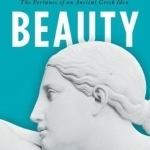Beauty: The Fortunes of an Ancient Greek Idea
BookThis item doesn’t have any media yet
2017 | History & Politics
Those who study the nature of beauty are at once plagued by a singular issue: what does it mean to say something is beautiful? On the one hand, beauty is associated with erotic attraction; on the other, it is the primary category in aesthetics, and it is widely supposed that the proper response to a work of art is one of disinterested contemplation. At its core, then, beauty is a contested concept, and both sides feel comfortable appealing to the authority of Plato, and via him, to the ancient Greeks generally. So, who is right-if either? Beauty offers an elegant investigation of ancient Greek notions of beauty and, in the process, sheds light on modern aesthetics and how we ought to appreciate the artistic achievements of the classical world itself. The book begins by reexamining the commonly held notion that the ancient Greeks possessed no term that can be unambiguously defined as "beauty" or "beautiful." Author David Konstan discusses a number of Greek approximations before positioning the heretofore unexamined term kallos as the key to bridging the gap between beauty and desire, and tracing its evolution as applied to physical beauty, art, literature, and more.
Throughout, the discussion is enlivened with thought-provoking stories taken from Homer, Plato, Xenophon, Plutarch, and others. The book then examines corresponding terms in ancient Latin literature to highlight the survival of Greek ideas in the Latin West. The final chapter will compare the ancient Greek conception of beauty with modern notions of beauty and aesthetics. In particular, the book will focus on the reception of classical Greek art in the Renaissance and how Vasari and his contemporaries borrowed from Plato the sense that the beauty in art was transcendental, but left out the erotic dimension of viewing. A study of the ancient Greek idea of beauty shows that, even if Greece was the inspiration for modern aesthetic ideals, the Greek view of the relationship between beauty and desire was surprisingly consistent-and different from our own. Through this magisterial narrative, it is possible to identify how the Greeks thought of beauty, and what it was that attracted them. Their perceptions still have something important to tell us about art, love, desire-and beauty.
Related Items:
| Published by | Oxford University Press Inc |
| Edition | Unknown |
| ISBN | 9780190663445 |
| Language | N/A |
Images And Data Courtesy Of: Oxford University Press Inc.
This content (including text, images, videos and other media) is published and used in accordance
with Fair Use.
